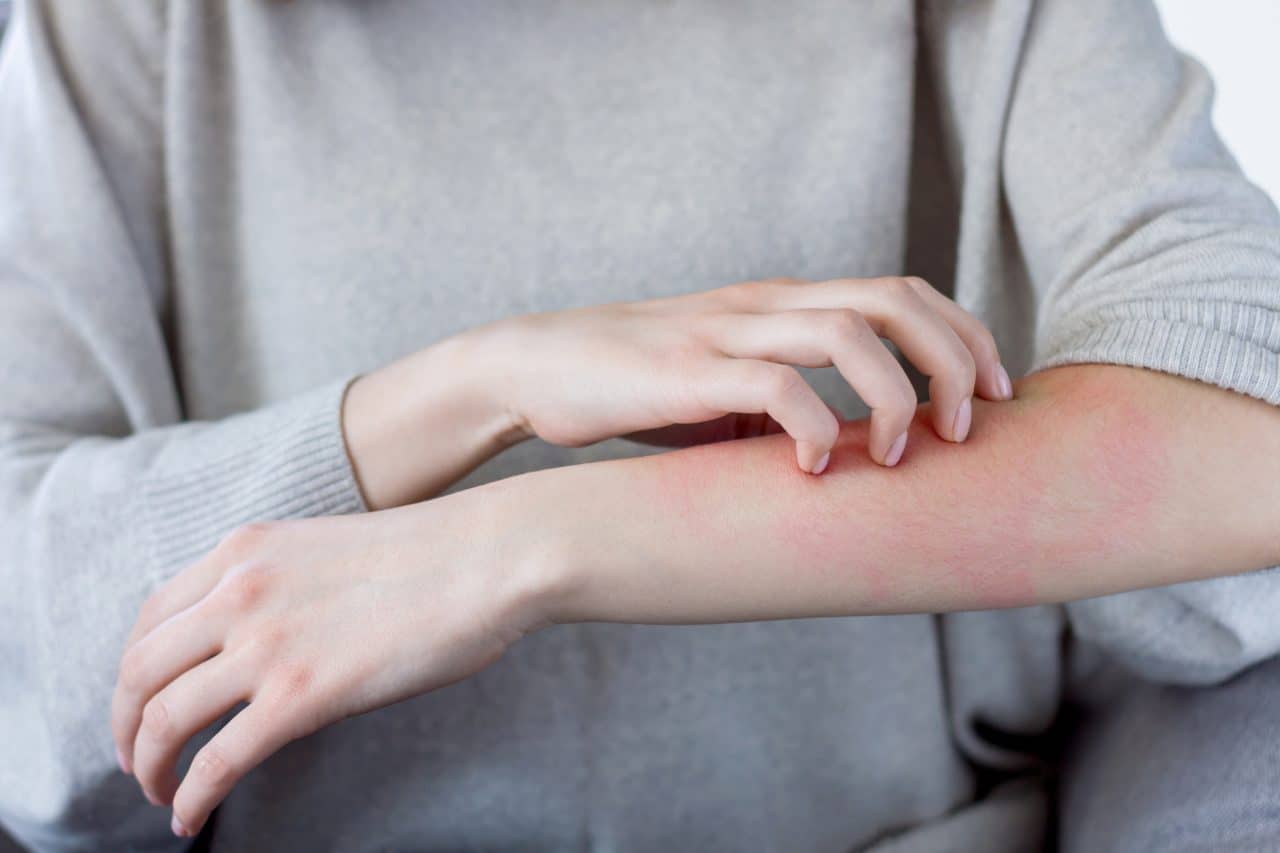When you think of hay fever you probably think of sneezing, nasal congestion and watery eyes. However, some people can also develop a rash as one of their symptoms. Let’s examine why this happens and what you can do to prevent or treat it.
How to Know if Your Rash is Caused by Hay Fever

Hay fever is also known as allergic rhinitis. It occurs when your immune system mistakes something harmless in the environment as a threat. Common causes of hay fever include
- Pollen from trees, grass or weeds
- Mold spores
- Dust mites
- Pet hair or dander
If your rash is caused by hay fever, it is likely because one of these allergens came into contact with your skin. For example, you may have gotten pollen on your arm when you went for a bike ride at Stumphouse Passage.
You also might want to take note of when your rashes are occurring. If you tend to get them more frequently in certain seasons (like spring) it may be due to the pollens of that season.
Avoid Your Triggers to Prevent Allergies
One of the best ways to prevent rashes and other symptoms of hay fever is to avoid or reduce your exposure to your allergy triggers. You can do this by:
- Avoid going outside when pollen counts are high.
- Keep the windows of your car and home closed.
- Change and wash any clothes that you wore outside and shower to remove any pollen in your hair or on your body.
- Don’t hang clothes outside to dry.
- Bathe your pets regularly and don’t let them into your bedroom.
- Wash your bedding weekly in hot water.
- Regularly vacuum carpets and upholstered furniture.
- Use a dehumidifier in your home to reduce mold and dust mites.
Visit an Allergist to Treat Hay Fever
If prevention methods aren’t enough to control your allergy symptoms or you are unsure what is triggering them, visit an allergist. They can help you manage your hay fever in several ways.
- Perform allergy testing via skin prick or blood test. This will identify your specific allergy triggers, which lets you know what to avoid.
- Recommend or prescribe antihistamines, nasal sprays, eye drops and other medications to help manage your symptoms.
- Evaluate whether or not you may be a good candidate for immunotherapy. This method of treatment consists of building a tolerance to an allergen by introducing it to the body in small doses over a period of time.
If you have additional questions or wish to make an appointment to discuss your allergy symptoms, contact Carolina Pines ENT today.
